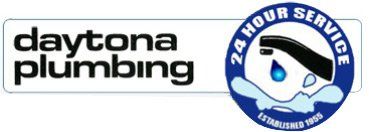Essential Plumbing Practices for Commercial Properties
June 17, 2024
As a commercial property owner or manager, ensuring that your plumbing system is well-maintained is essential to prevent costly repairs and disruptions to your business operations. Regular maintenance can help identify potential issues early on and extend the lifespan of your plumbing system. In this article, we will discuss some essential plumbing maintenance practices that you can implement to keep your commercial property's plumbing in top condition.
Schedule Regular Inspections:
One of the most important plumbing maintenance practices for commercial properties is scheduling regular inspections by a professional plumber. A trained plumber can identify any potential issues such as leaks, clogs, or corrosion before they escalate into major problems.
During these inspections, they will thoroughly check all the plumbing components, including pipes, valves, and fixtures, ensuring that everything is in proper working order. By catching these issues early on, you can save time and money on repairs in the long run. Additionally, regular maintenance can extend the lifespan of your plumbing system, improve water efficiency, and ensure compliance with local building codes. Investing in professional inspections is a proactive approach that pays off by preventing costly emergencies and maintaining a safe, reliable infrastructure for your property.
Check for Leaks:
Even small leaks in your plumbing system can lead to significant water damage if left unchecked. Over time, these leaks can erode structural components, create unsightly stains, and foster the perfect environment for mold and mildew to thrive. Make it a point to regularly inspect all faucets, pipes, and fixtures for any signs of leaks, such as damp spots, discoloration, or a musty odor. Addressing leaks promptly can prevent water damage, mold growth, and high water bills and ensure the longevity and safety of your home. Regular maintenance and timely repairs are key to avoiding costly fixes down the line.
Maintain Drains:
Clogged drains are a common issue in commercial properties due to the high volume of use. These blockages can lead to unpleasant odors, slow drainage, and even potential water damage if left unaddressed. Implementing a regular drain maintenance schedule can help prevent clogs and keep your plumbing system running smoothly.
Regular maintenance can include simple practices such as running hot water through the drains regularly, using strainers to catch debris, and avoiding the disposal of grease or heavy solids down the sinks. Additionally, consider using natural drain cleaners, such as baking soda and vinegar, which are effective and environmentally friendly.
For more persistent issues, scheduling professional drain cleaning services can ensure that your drains remain clear and functional. These services can provide a thorough cleaning, removing any buildup or obstructions that may have formed over time. By taking these proactive measures, you can maintain a healthy plumbing system and avoid costly repairs in the future.
Insulate Pipes:
During the colder months, frozen pipes can be a major concern for commercial properties. Frozen pipes can burst and cause extensive water damage to your property. To prevent this from happening, make sure all exposed pipes are properly insulated. Additionally, allow faucets to drip during cold weather to prevent freezing.
Educate Employees:
Proper plumbing maintenance is not solely the responsibility of the property owner or manager — it's important to educate employees about good practices as well. Encourage employees to report any plumbing issues promptly and provide training on how to use fixtures properly to avoid unnecessary wear and tear on the system.
Maintaining a commercial property's plumbing system requires diligence and proactive measures to prevent costly repairs and downtime. By implementing these essential plumbing maintenance practices such as scheduling regular inspections, checking for leaks, maintaining drains, insulating pipes, and educating employees, you can ensure that your plumbing system remains in top condition. Remember that investing in routine maintenance now can save you time and money in the long term while keeping your business operations running smoothly.
For more information, contact us.






